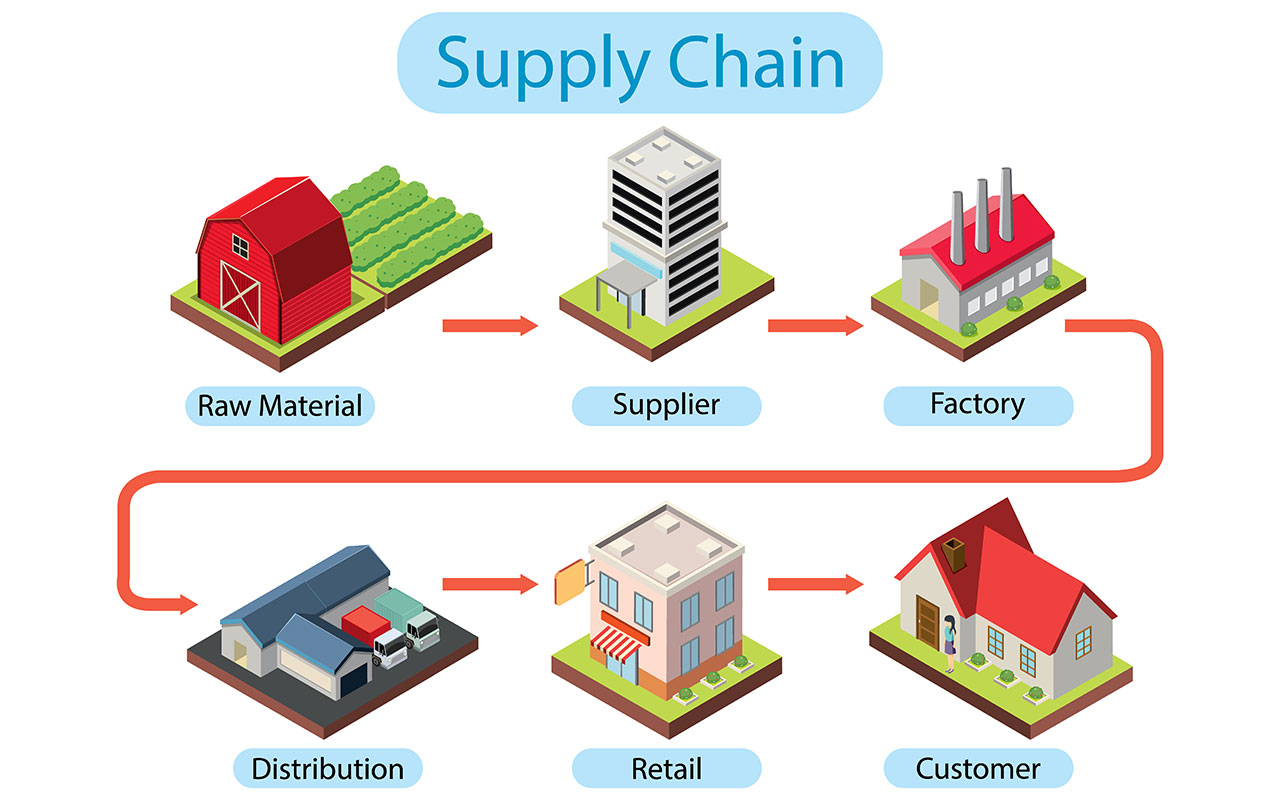
High ethical standards are considered a critical success factor thus we promote decent working- and environmental standards both inhouse as well as in our supply chains. We cooperate closely with our suppliers and business partners in pursuit of this aim. Accordingly, we have prepared this Supplier Code of Conduct to illustrate what we expect of our suppliers and business partners. The Supplier Code of Conduct covers human rights, workers’ rights, the environment and anti-corruption.
Principles
NPA Nordiskt Papper AB’s suppliers shall supply goods and services that are produced in compliance with the code of conduct. Moreover, the suppliers should communicate the code of conduct to their sub-suppliers and monitor implementation.
A supplier must be able to document compliance with the code of conduct on NPA Nordiskt Papper AB’s request. Such documentation may take the form of self-declaration, follow-up meetings, and/or inspections of the working conditions at production sites. The supplier will be obliged to name and provide contact information for any sub-supplier that NPA Nordiskt Papper AB’s wishes to inspect.
In the event of a breach of the code of conduct, NPA Nordiskt Papper AB and the supplier will jointly prepare a plan for improvement. The improvement must take place within a reasonable timeframe. Termination of the contract will only be considered if the supplier remains unwilling to improve the breach following repeated enquiries.
Requirement related to own practice
When new suppliers are selected, social and environmental standards will be emphasized.
Neither NPA Nordiskt Papper AB nor any of our employees shall ever offer or accept illegal or unlawful monetary gifts or other forms of remuneration to secure business-related or private benefit, or benefit for customers, agents or suppliers.
NPA Nordiskt Papper AB and our supplier network shall avoid partners that operate in countries subject to international boycott by the United Nations and/or Swedish authorities.
Requirements to Supply Chain Conditions
NPA Nordiskt Papper AB’s Supplier Code of Conduct is based on requirements stated in the EU Directive 2014/24 for Public Procurement, and on key UN and International Labour Organization conventions and documents. National laws shall be respected, and where the provisions of law and NPA Nordiskt Papper AB’s Code address the same subject, the most stringent shall apply.
1. Forced and compulsory labour (ILO Conventions Nos. 29 and 105)
1.1 There shall be no forced, bonded or involuntary prison labour.
1.2 Workers shall not be required to lodge deposits or identity papers with their employer and shall be free to leave their employer after reasonable notice.
2. Child Labour (UN Convention on the Rights of the Child, ILO Conventions Nos. 138, 182 and 79, and ILO Recommendation No. 146)
2.1 The minimum age for workers shall not be less than 15 and comply with
i) the national minimum age for employment, or;
ii) the age of completion of compulsory education, whichever of these is higher.
If local minimum is set at 14 years in accordance with developing country exceptions under ILO Convention 138, this lower age may apply.
2.2 There shall be no recruitment of child labour defined as any work performed by a child younger than the age(s) specified above.
2.3 No person under the age of 18 shall be engaged in labour that is hazardous to their health, safety or morals, including night work.
2.4 Policies and procedures for remediation of child labour prohibited by ILO conventions no. 138 and 182, shall be established, documented, and communicated to personnel and other interested parties. Adequate support shall be provided to enable such children to attend and complete compulsory education.
3. Discrimination (ILO Conventions Nos. 100 and 111 and the UN Convention on Discrimination Against Women)
3.1 There shall be no discrimination at the workplace in hiring, compensation, access to training, promotion, termination or retirement based on ethnic background, religion, age, disability, gender, marital status, sexual orientation, union membership or political affiliation.
3.2 Measures shall be established to protect workers from sexually intrusive, threatening, insulting or exploitative behaviour, and from discrimination or termination of employment on unjustifiable grounds, e.g.
marriage, pregnancy, parenthood or HIV status.
4. Harsh or Inhumane Treatment
4.1 Physical abuse or punishment, or threats of physical abuse, sexual or other harassment and verbal abuse, as well as other forms of intimidation, is prohibited.
5. Health and Safety (ILO Convention No. 155 and ILO Recommendation No. 164)
5.1 The working environment shall be safe and hygienic, bearing in mind the prevailing knowledge of the industry and of any specific hazards. Hazardous chemicals and other substances shall be carefully managed. Adequate steps shall be taken to prevent accidents and injury to health arising out of, associated with, or occurring in, the course of work, by minimising, so far as is reasonably practicable, the causes of hazards inherent in the working environment.
5.2 Workers shall receive regular and documented health and safety training, and such training shall be repeated for new or reassigned workers.
5.3 Access to clean toilet facilities and to potable water, and, if appropriate, sanitary facilities for food storage shall be provided.
5.4 Accommodation, where provided, shall be clean, safe and adequately ventilated, and shall have access to clean toilet facilities and potable water.
6. Wages (ILO Convention No. 131)
6.1 Wages and benefits paid for a standard working week shall as minimum meet national legal standards or industry benchmark standards, whichever is higher. Wages should always be enough to meet basic needs, including some discretionary income.
6.2 All workers shall be provided with a written and comprehensible contract outlining their wage conditions and method of payments before entering employment.
6.3 Deductions from wages as a disciplinary measure shall not be permitted.
7. Working Hours (ILO Convention No. 1 and 14)
7.1 Working hours shall comply with national laws and benchmark industry standards, and not more than prevailing international standards. Weekly working hours should not on a regular basis be more than 48 hours.
7.2 Workers shall be provided with at least one day off for every 7 day period
7.3 Overtime shall be limited and voluntary. Recommended maximum overtime is 12 hours per week,
i.e. that the total working week including overtime shall not exceed 60 hours.
7.4 Workers shall always receive overtime pay for all hours worked over and above the normal working hours (see 8.1 above), minimum in accordance with relevant legislation.
8. Regular Employment
8.1 Obligations to employees under international conventions, national law and regulations concerning regular employment shall not be avoided through the use of short-term contracting (such as contract labour, casual labour or day labour), sub-contractors or other labour relationships.
8.2 All workers are entitled to a contract of employment in a language they understand.
8.3 The duration and content of apprenticeship programmes shall be clearly defined.
9. Marginalized Population
9.1 Production and the use of natural resources shall not contribute to the destruction and/or degradation of the resources and income base for marginalized populations, such as in claiming large land areas, use of water or other natural resources on which these populations are dependent.
10. Environment
10.1 Measures to minimize adverse impacts on human health and the environment shall be taken through out the value chain. This includes minimizing pollution, promoting an efficient and sustainable use of resources, including energy and water, and minimizing greenhouse gas emissions in production and transport. The local environment at the production site shall not be exploited or degraded.
10.2 National and international environmental legislation and regulations shall be respected and relevant discharge permits obtained.
10.3 When purchasing, we consider a life cycle perspective, ie how the product / service affects the different stages of the life cycle (acquisition of raw materials, production, construction, transport / delivery, use, handling after the end of life and final waste management). We should always choose the supplier with the lowest Carbon footprint, as a specific direction towards considering the LCA perspective.
11. Reach & general chemical demands
All REACH directive demands shall be fulfilled. Substances listed in the SVHC list shall not occur in amounts higher than 0,1%. If new substances are added to the SVHC list during the contract, this requirement shall be met within 6 months after the European Chemicals Agency’s (ECHA) publication of a revised SVHC list.
12. Corruption
12.1 Corruption in any form is not accepted, including bribery, extortion, kickbacks and improper private or professional benefits to customers, agents, contractors, suppliers or employees of any such party or government officials.
13. Management systems of suppliers
The management system is key to the implementation of the Supplier Code of Conduct. NPA Nordiskt Papper AB emphasises the importance of suppliers having systems that support such implementation. Our expectations are summed up in the following measures:
- The supplier should make a centrally placed employee responsible for the implementation of the Code of Conduct in the supplier’s business.
- The supplier must make the Code known in all relevant parts of its organisation.
- The supplier must obtain NPA Nordiskt Papper AB’s consent prior to outsourcing production or parts of production to a sub-supplier/contractor if this has not been agreed in advance.
- The supplier must be able to give an account of where goods ordered by NPA Nordiskt Papper AB’s products are produced.
